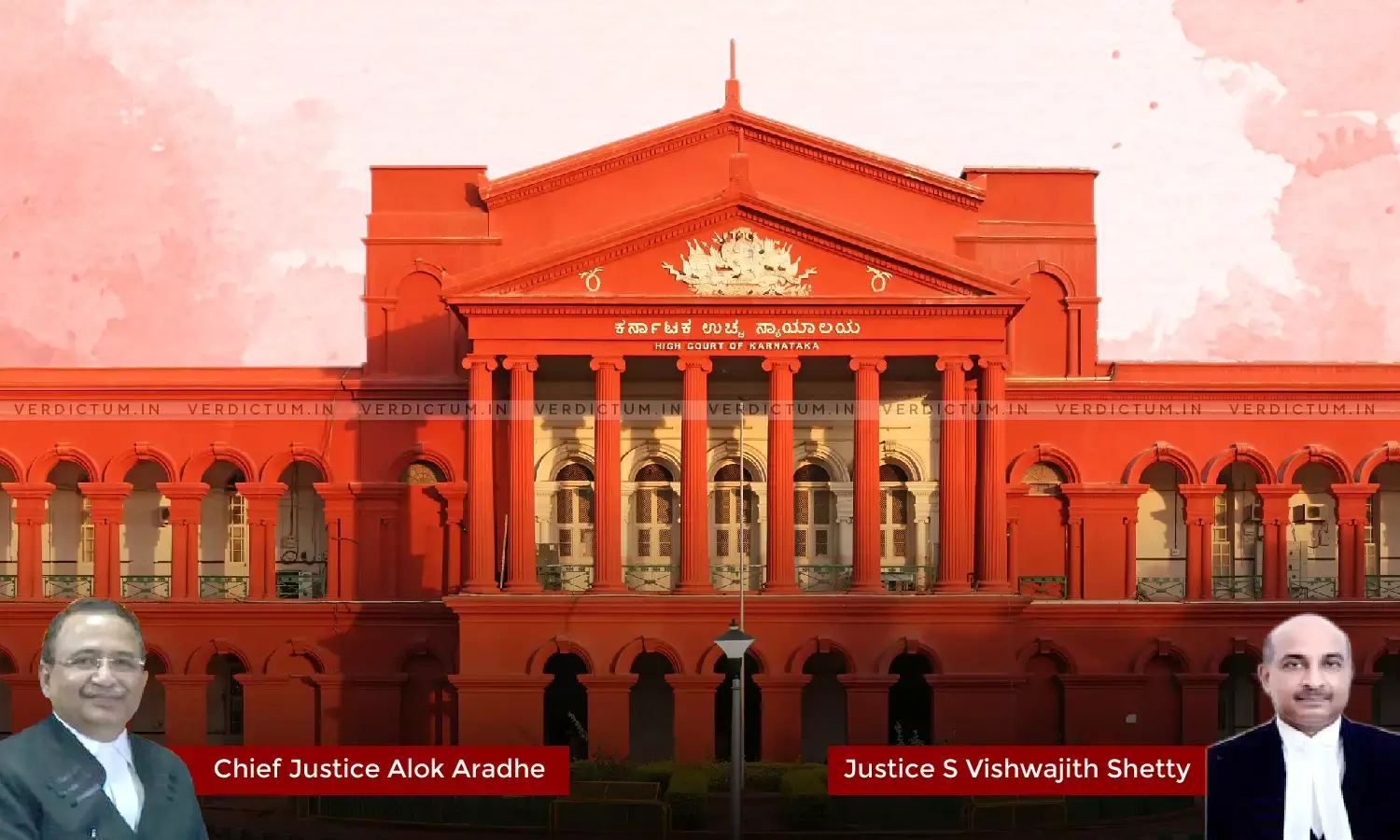Karnataka HC Holds That Contents Of Azan Don't Violate Rights Of Persons Of Other Faith, Without Referring To The Contents
The Karnataka High Court on Monday refused to accept the contention of the Petitioner in a PIL that the contents of Azan or Adhan violate the fundamental right guaranteed to the petitioner or persons of other faith.
However, the Court did not even refer to the contents of Azan before arriving at that conclusion.
The Petitioner, Chandrashekhar R. had prayed in the Writ Petition "to stop the mosques or masjids in the State of Karnataka for using the objectionable words through loudspeakers while calling Azan or Adhan prayer 5 times in a day throughout the 365 days in a year".
Contents of Azan
The verses of Azan or Adhan and their meaning are as follows (as per alislam.org):-
- Allahu Akbar (four times)- Allah is the Greatest.
- Ashhadu alla ilaha illallah (twice)- I bear witness that there is none worthy of worship except Allah.
- Ashhadu anna Muhammadar Rasulullah (twice)- I bear witness that Muhammad is the Messenger of Allah.
- Hayya 'alas-Salah (twice)- Come to Prayer.
- Hayya 'alal-Falah (twice)- Come to success.
- Allahu Akbar (twice)- Allah is the Greatest.
- La ilaha illallah- There is none worthy of worship except Allah.
Court's Findings
"…contention that the contents of Azan or Adhan violate the fundamental right guaranteed to the petitioner as well as persons of other faith cannot be accepted.", the Bench of Acting Chief Justice Alok Aradhe and Justice S Vishwajith Shetty held.
Advocate Manjunath S Halawar appearing on behalf of the Petitioner contended that the contents of the Azan or Adhan hurt believers of other religious faiths. Additional Government Advocate, SS Mahindra appeared for the respondents but does not appear from the order to have made any submission.
The Court observed that Articles 25 and 26 of the Constitution "embodies principle of religious toleration which is a characteristic feature of Indian Civilization".
However, the Court did not consider whether saying on loudspeaker 5 times a day that "There is none worthy of worship except Allah" is an expression of "religious toleration".
The Court observed Article 25(1) of the constitution which confers a fundamental right on all persons to freely profess, practice and propagate their religion.
However, the Court did not consider whether saying on loudspeaker, effectively, that the Gods worshipped in other faiths are not worthy of worship will be protected under the right to profess or practice one's religion under Article 25.
The Court acknowledged the rights of the Petitioner as well as of the believers of other faith to practice their religion.
"Undoubtedly the petitioner as well as the believers of other faiths have the right to practise their religion. Azaan or Adhan is a call to offer prayers. However the contention that the contents of Azan or Adhan violate the fundamental right guaranteed to the petitioner as well as persons of other faith cannot be accepted.", the Court said.
The Court further observed that "It is also pertinent to note that it is not the case of the petitioner himself that his fundamental right guaranteed under Article 25 of the Constitution of India is being infringed in any manner by calling of Azan or Adhan, through loudspeakers or public address system."
Incidentally, the Court noted that the right under Article 25 is not an absolute right and is subject to restrictions on the grounds of public order, morality and health. This was in the context of the use of loudspeakers and not what is spoken using loudspeakers.
The Bench directed the State to ensure that loudspeakers, PA systems, sound-producing instruments and other musical instruments shall not be permitted to be used above permissible decibels during the night from 10 pm to 6 pm.
The Court directed the State authorities to follow the directions issued by the High Court in June 2022 whereby it had directed state authorities to carry out a drive to prevent the misuse of the loudspeakers and PA systems. The Court also directed the filing of a compliance report within 8 weeks.
In June this year, a Division Bench of the then Chief Justice Ritu Raj Awasthi and Justice Ashok S Kinagi had directed, "In view of the stand taken by the State Government-respondents, the concerning authorities are required to take appropriate action and they shall not permit the use of loudspeakers and public address system and other musical instruments producing sound above the permissible decibels during the night from 10.00 p.m. to 6.00 a.m.".
Conclusion
Various Courts have on numerous occasions held that loudspeakers should not be used beyond permissible decibels and permissible hours. Such directions are mostly ignored and never implemented fully. The Uttar Pradesh government recently removed 45,773 loudspeakers from religious places across the state, and reduced the volume of 58,861 loudspeakers to permissible levels during a drive against the illegal use of loudspeakers.
However, the petition before the Karnataka High Court presented a unique opportunity to scrutinize the contents of what people of all faiths are forced to hear five times a day, in all parts of our country. The Court could have either entered into that scrutiny or refused to do so citing some technical excuse. The Court should not have given its imprimatur to the contents of Azan without any discussion.
[The opinions expressed in this article are those of the author. Verdictum does not assume any responsibility or liability for the contents of the article.]
Cause Title- Chandrashekar R v. The State of Karnataka
Click here to read/download the Order












